Ross Mars, permaculture pioneer of Western Australia, died peacefully on the 9th November from Motor Neurone Disease at home in Mundaring WA surrounded by his family.
Although I didn’t know Ross well, over the years we met at permaculture gatherings and corresponded about permaculture teaching and book publishing. I got a closer sense of the man when he was in the hot seat as the lead organiser of the 13th Australian Permaculture Convergence (APC) in WA in 2016. I was impressed by how he could keep going when under pressure from multiple directions. More generally, I will remember Ross for his passion, diligence, hard work and especially his persistence over more than thirty years contributing to permaculture in many different and complementary ways.
For some of the details about the first two decades of Ross Mars’ life with permaculture, I reread his “Straw and Water”, in Permaculture Pioneers: stories from the new frontier edited by Kerry Dawborn and Caroline Smith (Melliodora Publishing 2011). In the piece, Ross explains how he came to permaculture in 1990 through his wife Jenny’s interest, and progressively over the years and decades it shaped his life and livelihood. In the process, he introduced many people to permaculture through his teaching, organising and books, locally in WA and further afield.
Through his passion for permaculture he created a new livelihood as an consultant and installer of innovative greywater treatment and rainwater harvesting systems. He was awarded a PhD for his research in the field, and his business work and input into public policy contributed to WA becoming a centre of innovation and mainstream adoption of water harvesting, reuse and reprocessing technology.
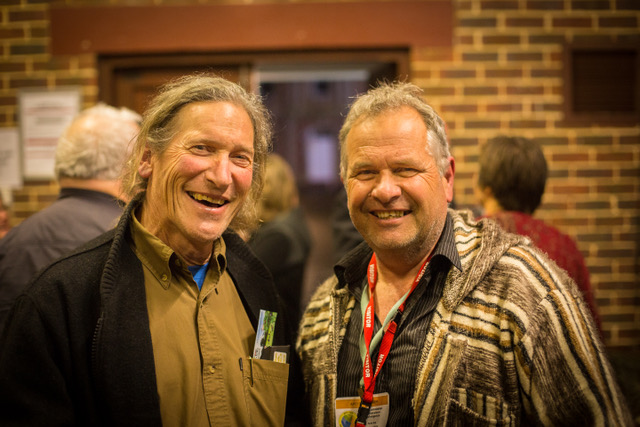
Photo: Oliver Holmgren
Ross was a prolific writer having written, co-written or edited twenty books for primary and secondary students in his years as a school teacher and his books for adults include five related to permaculture. His last, The Basics of Regenerative Agriculture was sent to the UK publisher in August.
I get the impression Ross was a self-starter and certainly a constant learner as one might expect from a permaculture pioneer, but he was not a cranky individualist let alone feral fringe dweller rejecting society’s norms in the way that some pioneers are. Bringing permaculture to the mainstream is a constant theme at permaculture gatherings. Ross’ life provides us with a great case study of that process. First as a school teacher, then through his demonstration farm and businesses, PDC teaching, pioneering government Accredited Permaculture Training, permaculture in schools, organiser and convenor, and advocate for public policy change, Ross’s life and activism are a great example of how permaculture can, and has, influenced mainstream Australian society.
Some of us closer to the fringe tend to focus on new ideas and their initial testing but can forget that widespread, even mass adoption of innovations in society involves persistence, focus and inevitably a narrowing of that focus and the priorities needed to make it happen. Ross’s work with greywater treatment and water harvesting illustrates that process but he never gave up his energy and passion for the larger vision and design thinking that makes permaculture relevant to life and nature more generally.
Some might have regarded Ross as a bit pedestrian and conservative, with his designs and teaching focused on solid infrastructure and construction more than the fluid emergent nature of biology and the human “invisible structures” that are the focus in much of permaculture teaching and design. And of course, like many of the pioneers of permaculture, Ross might even have been characterised by some as “pale, male and stale” but his grounded, no-nonsense approach to permaculture appealed to Australians wanting practical answers rather than the philosophy, or dare I say the eco-fashion and virtue signalling, that appeals to others.
Another lesson that we are able to learn from Ross’s legacy is that it is possible to succeed in running a permaculture-inspired business, including jumping through all the regulatory hoops involved. For that to become a successful family business in the way that Water Installations has is even less common as the offspring of permaculture pioneers often find less challenging ways to earn a living or dump the pioneer’s ideals as too out of step with the “real world”.
I have no knowledge about those dynamics in Ross’s family business, Water Installations, but wish them all the best in both surviving and thriving with appreciation for the passion and legacy Ross left, making us all richer in so many ways.
David Holmgren
Co-originator of Permaculture
Melliodora

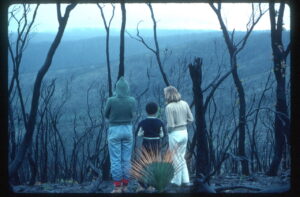

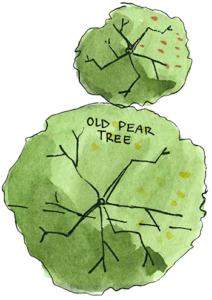
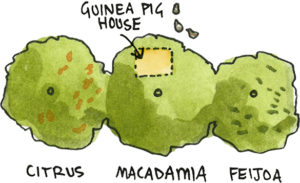












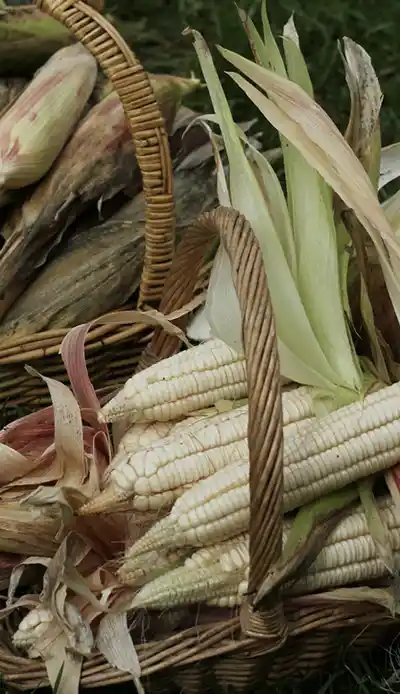
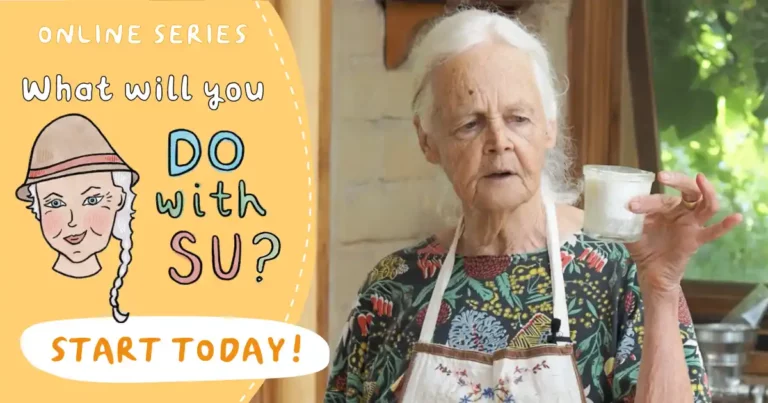
4 thoughts on “Vale Ross Mars: Persistent Permaculture”
Wonderful tribute. Insightful, interesting and honouring.
Beautiful words I was lucky enough to know Ross for over 30 years, and he was the 1st to give me paid work showing off my farm where I was implementing my first Permaculture activities.
I love, his sense of humour is irreverence his cheeky sense of humour, the course is wonderful, warm and very generous heart.
He is someone who can truly say they have inspired others and have left the world a better place for them having been here.
Blessings
Ross was an incredible force. He was a local in my town and a well-known personality who walked the talk. Those of us who were lucky enough to visit Candlelight Farm left inspired and impressed with Ross’s realness. No airs just honest, genuine sharing of his passion. His was a life well-lived.
I was saddened today having learnt of the passing of Ross Maas late last year. I learnt a lot from him. He was a pioneer in the Perth Hills and is responsible for the greywater reuse system in our home, as well as facilitating two PDS I attended – one of which was also facilitated by numerous (then) new Permaculture graduates – and where I was inspired by his practical and steady delivery of what were then new concepts for me. Maybe he and Bill are gardening together on the edges of wherever they are now. I will always respect Ross and be grateful for the work he did.